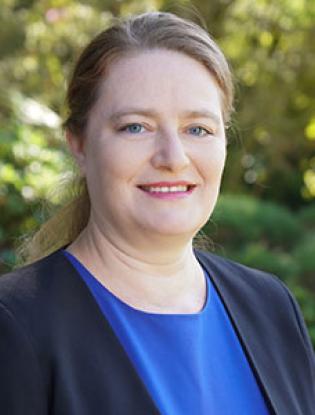Violetta Karpova, M.D., is a board-certified radiologist with subspecialty fellowship training in breast and body imaging. Dr. Karpova currently practices breast and abdominopelvic imaging, interpreting digital mammography, breast tomosynthesis, breast ultrasound, breast MRI (magnetic resonance imaging), abdominal/pelvic MRI, CT (computed tomography), US (ultrasound) exams. She also performs a variety of image-guided breast interventional procedures including US-, MRI-guided breast biopsies, stereotactic- guided breast biopsies, needle-wire and wireless seed localizations, which helps surgeons to tailor their surgical approach.
"Practice of breast imaging gives me an opportunity to detect disease early,” Dr. Karpova says, “in order to facilitate an appropriate treatment plan using minimally invasive diagnostic and interventional tools.” Dr. Karpova is committed to delivering patient-centered, empathetic, efficient, and accurate care with an opportunity to discuss imaging findings and possible next steps directly with patients after their exam to help reduce anxiety. Her interests include breast cancer screening and raising patient awareness about the importance of early detection of breast cancer using mammography.
Dr. Karpova received her medical degree from the Medical College of Wisconsin in Milwaukee before continuing on to a residency in diagnostic radiology at St. Luke’s Medical Center in Wisconsin, followed by MRI/US body imaging fellowship at Rush University Medical Center in Chicago, Illinois and additional combined breast and body imaging fellowship at Stanford Medical Center in Palo Alto, California.
Dr. Karpova is an active member of the American College of Radiology (ACR), the Radiological Society of North America (RSNA), the Society of Breast Imaging (SBI) and the Society of Radiologists in Ultrasound (SRU). Dr. Karpova is pleased to contribute to City of Hope’s tradition of high-quality medical care, combined with multidisciplinary team approach to patient care working closely with the breast surgeons, oncologists, and pathologists to provide equitable healthcare for the patients. At City of Hope, “Multidisciplinary teams collaborate on treating the patient as a whole, instead of just the affliction,” Dr. Karpova says
